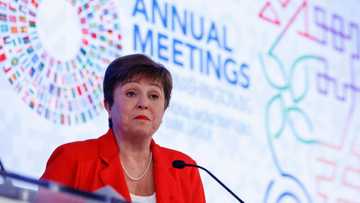Why Doctors Do Not Find Nigerian Healthcare System Attractive by Olumide Adesina
The UK has placed Nigeria and 53 other nations on a red list as employers in health or social care are unwilling to hire them.
One month prior, the World Health Organization (WHO) listed Nigeria as one of the 55 nations with the most urgent workforce issues connected to universal health coverage. Nigeria has the third-highest percentage of foreign doctors working in the UK, behind Pakistan and India.

Source: UGC
The UK stated in its revised code of practice that unless there is a government-to-government agreement to support managed recruitment activities, health and social care organizations in England do not actively recruit from countries identified by WHO as having the most pressing health and care workforce-related challenges.
Massive physician emigration from Nigeria has slowed physician population growth in relation to population growth in the nation.
A 2017 poll conducted by the Nigerian Polling Organization (NOIPolls) in collaboration with Nigeria Health Watch found that 88% of Nigerian doctors were looking for employment abroad at the time.
PAY ATTENTION: Join Legit.ng Telegram channel! Never miss important updates!
According to the Nigeria Medical Association, at least 50 doctors depart for foreign employment each week. The main causes include poor working conditions, poor access to medical aid, low income, and growing living expenses.
Nigeria will lose out on both ends if its physicians migrate in large numbers to work abroad. The doctors we require to keep our society healthy and prosperous are leaving. Due to inadequate salaries and other unfavorable circumstances, we are also losing the billions the government invests in public colleges to train doctors.
There are currently 44 medical schools and colleges in Nigeria that have received government approval, 37 of which have received full accreditation to provide a range of medical courses for a period of six years. Following graduation, the doctors complete their houseman ships, obtain their council licenses, and are then required to do one year of mandatory national service.
The Nigerian Medical Association (NMA) estimates that every year, between 3,000 and 3,500 doctors graduate from the nation's medical schools.
Notably, there are only a limited number of slots available due to a lack of facilities and human resources, making entrance requirements for medical school in Nigeria exceptionally strict.
Due to the fierce competition for the limited available admission spots, many candidates are now choosing to pursue their medical education abroad.
The health sector's pitiful budgetary allotment during the past 20 years reflects the entire story. The African Union recommended in 2001 in Abuja that member countries devote at least 15% of their annual budget to the health sector. Experts regret that the country's present allocation has continued to fall short of this objective.
Sadly, the political elite would rather spend money on the private healthcare industry than on treating themselves and members of their families in foreign hospitals.
We need legislation that will compel our elected officials to cease utilizing tax dollars to pay for personal medical care abroad and to make adequate investments in our public health system.
The need of taking action at the national level cannot be overstated in order to stop the terrible trend and avoid the projected physician shortage in Nigeria. A reliable prediction of the pattern of outflow from the country and the identification of the elements encouraging the trend are essential prerequisites for an effective national response.
A vital step would be to make sure that all eligible doctors are employed in the public health system, even at the going rate of pay and even if the federal government will need to provide additional funding to states in this particular instance to cover the expense of the staff increase.
The pay of all categories of doctors in the public health system should also be urgently reviewed and increased by at least 100%. Third, the government may also think about providing loans to businesses so they can establish private practices with enough patients to pay doctors at the going rate for the public system.
- Olumide Adesina a France-born Nigerian, a Certified Investment Trader, with more than a decade of working expertise in Investment Trading.
Source: Legit.ng





